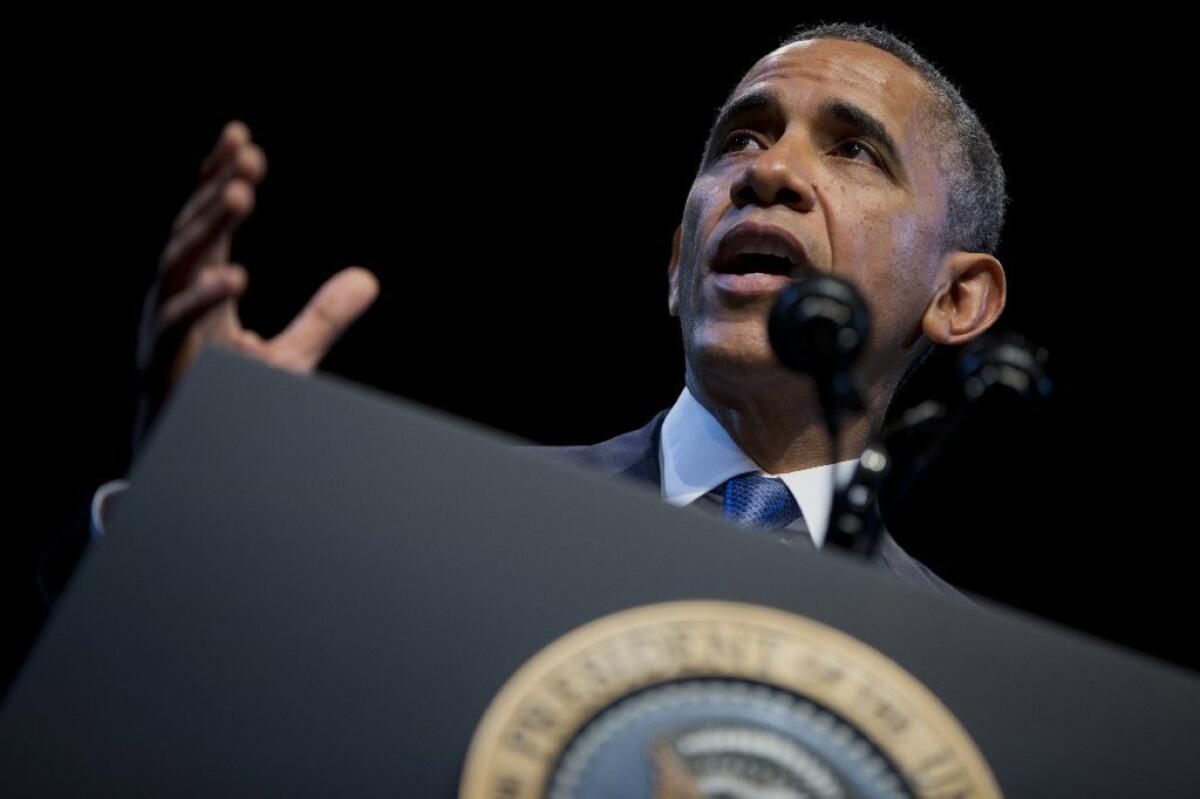
Whether it’s because President Obama recently highlighted the issue or because most Americans are really feeling the pain, the debate over income inequality is now part of the mainstream kitchen-table debate.
That’s the conclusion to be drawn from a Gallup poll released Monday, on Martin Luther King Day. The survey finds that two-thirds of adults are somewhat or very dissatisfied with income and wealth distribution in the U.S. The poll was taken on Jan. 5-8, or about a month after the president’s speech about economic inequality.
The partisan breakdown is about what you’d expect. Dissatisfaction is least pronounced, though still a majority view, among self-declared Republicans (54% total); more so among independents (70%), and greatest among Democrats (75%).
The discontent spans all age ranges in the detailed Gallup breakdown, from the 18-29 cohort (72%) to the 65+ (63%). It’s also consistent across all educational levels and income levels, which Gallup stratifies from less-than-$20,000 (55% dissatisfied) to $75,000+ (67%). Between those extremes, dissatisfaction rests in the 70%-75% range. The relative contentment of the under-$20,000 group is a bit of a mystery.
The survey results underscore that wealth and income inequality–and the hampered social and economic mobility fostered by the trend–have become visceral issues for millions of Americans. They see it not as a question of race or class, but of personal opportunity and attainment. The message that the vast majority of working people haven’t been sharing fairly in the fruits of their own labor is finally percolating through to the voting public.
The political implications of this developing consciousness will play out over the coming months and into 2016. As Obama’s speech suggests, Democrats (and especially the party’s progressive wing) understand that Washington must address the manifold trends feeding into our sharp increase in economic inequality.
On the Republican/conservative side, there seems still to be an impulse to wish the issue away or redefine it as an artifact of social realities. David Brooks exemplifies this nothing-to-see-here mentality, which tries to depict the debate as class warfare, which supposedly we’re not experiencing already. (Paul Kurgman’s oblique critique of his stablemate Brooks’ viewpoint is here.)
Smarter conservatives like Josh Barro recognize that inequality is a real phenomenon with its roots in economic policy. Barro actually offers a sheaf of economic prescriptions to fight it, and although progressives can and will challenge the efficacy or fairness of some of them, others are just what the doctor ordered–make the tax system more progressive, reform copyright and patent laws. These go against conservative orthodoxy, but sometimes you have to give up your shibboleths to achieve something.
What’s inescapable is that the voters will be paying close attention to what candidates have to say about economic inequality. The Gallup poll suggests that people are really hurting after 20 years of stagnation for the middle and working class.